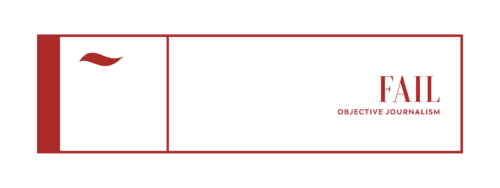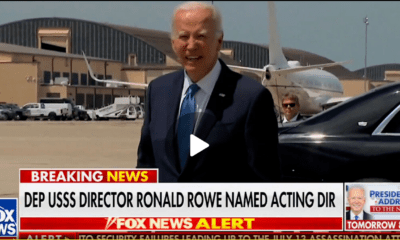Censorship Watch
BREAKING: Is Congress Set to OFFICIALLY Kill TikTok!?

Lawmakers in Washington D.C. are set to vote today on whether to potentially ban TikTok, the immensely popular Chinese-owned social media app, from being used in the United States. The proposed ban is part of the broader ‘Protecting Americans from Foreign Adversary Controlled Applications Act,’ a 12-page bill that aims to make it illegal to distribute apps developed by ByteDance, TikTok’s Chinese parent company, or other entities deemed “controlled by a foreign adversary.” While concerns over national security have been the driving force behind the initiative, some critics argue that this move might inadvertently infringe upon the principles of free speech.
National Security Concerns: Intelligence experts and the FBI have long raised concerns about the potential threat posed by TikTok, citing fears that China could leverage the app to control users’ phones or manipulate their thinking through its algorithm. With TikTok claiming over 170 million users in the United States, accounting for roughly half the population, the stakes are undeniably high.
The ‘Protecting Americans from Foreign Adversary Controlled Applications Act’: The bill, which will be voted on by members of the House of Representatives today, puts forth a strict ultimatum for ByteDance: sell TikTok within 180 days or face a ban. This bipartisan effort has received unanimous support from a House committee, and President Joe Biden has indicated that he would sign it into law if it passes.
Opposition and Criticism: Not everyone is on board with the proposed ban. Some high-profile GOP lawmakers, including Rep. Thomas Massie and Rep. Rand Paul, have voiced their concerns. Massie referred to the bill as a “trojan horse,” expressing worry that it could grant the president the power to ban websites, not just apps. Rand Paul argued that the legislation might jeopardize the First Amendment and grant the federal government the authority to ban social media platforms.
Former President Donald Trump has also joined the chorus of opposition, suggesting that a TikTok ban would only benefit competitors like Facebook. Trump wrote on his Truth Social platform, “If you get rid of TikTok, Facebook and Zuckerschmuck will double their business. I don’t want Facebook, who cheated in the last Election, doing better. They are a true Enemy of the People!”
Public Opinion: A recent Pew Research poll reveals a decline in public support for banning TikTok, with only 38% of U.S. adults in favor, down from 50% in March 2023. This shift in sentiment raises questions about whether the ban truly reflects the will of the American people.
TikTok’s Response and China’s Warning: TikTok, not surprisingly, vehemently opposes the proposed ban. A spokesperson for the company argued that the bill would strip millions of Americans of their constitutional right to free expression, damage businesses, deny artists an audience, and adversely impact countless creators across the country. In response, China issued a warning through Foreign Ministry spokesman Wang Wenbin, stating, “In the end, this will inevitably come back to bite the United States itself.”
The Business Angle: Amidst the political turmoil, entrepreneurs like Shark Tank’s Kevin O’Leary and video platform Rumble have seized the opportunity, expressing interest in acquiring TikTok if ByteDance is willing to sell. This adds a layer of unpredictability to the situation, as potential buyers eagerly await the outcome of the legislative decision.
Conclusion: As the ‘Protecting Americans from Foreign Adversary Controlled Applications Act’ faces a crucial vote in the House today, the potential ban on TikTok looms large. While national security concerns drive the proposed legislation, its impact on free speech and the vibrant TikTok community cannot be ignored. The bill’s fate, uncertain as it stands, will likely face a more challenging vote in the Senate, raising the stakes even higher in the ongoing debate over the balance between security and the preservation of fundamental rights.






